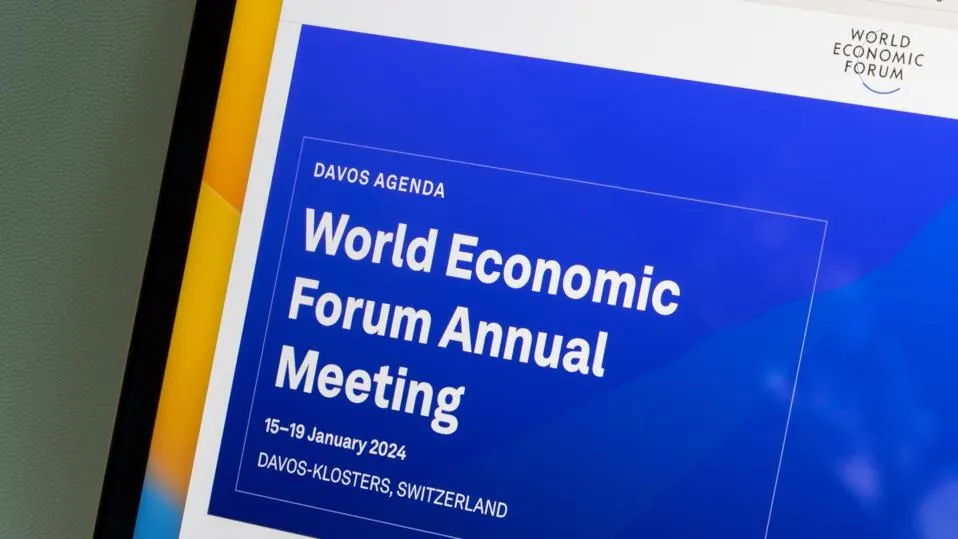The Six Biggest Blockchain Trends Everyone Should Know About In 2021
2 July 2021
Blockchain has been one of the most talked-about tech trends of the last few years. As with many other trends that were important before the pandemic hit, it didn’t make as many headlines in 2021 as it has done previously. But development has been ongoing and the year saw continued adoption of the technology throughout many industries and sectors.

The simplest way to think about blockchain is that it is a database – a storage infrastructure for data – that’s secured by both encryption and by being decentralized. With many copies spread across many locations, all kept up-to-date simultaneously, changes can only be made to the data when there is consensus that it is correct to do so.
This relatively new (established by the protocol for the Bitcoin cryptocurrency in 2008) way of managing and securing data can be used anywhere there is a need for a shared database that can be accessed and used by different people or organizations. One way of looking at it is that the security of the data is ensured by mathematics (cryptography), rather than having to rely on the trustworthiness of whoever the data happens to be in the hands of at any given time.
Blockchain is valuable for any sort of transaction where values and timestamps need to be securely recorded, so it is of particular interest to financial services companies. However, it’s also potentially useful for any process that involves tracking the movement of data between parties, so it has applications across trading, supply chain, logistics, and provenance.
Blockchain for vaccine tracking and distribution
The development of Covid-19 vaccines was hopefully the first step towards defeating the virus, but governments around the world are facing a huge task in distributing it to their populations. With limited supply and the need to be kept in refrigerated conditions, this is a great example of a problem for which blockchain provides a solution.
Over the next year, we are likely to see blockchain used to track vaccines from the point of manufacture to the patient. At every step of the journey, it can be used to create a permanent and non-falsifiable record of where each batch was at any given time. To do this at the speed required for vaccination to be effective across the entire world means processes must be developed for demand forecasting, supply chain management, and authentication.
Currently leading the field in deploying blockchain-based solutions to these problems is IBM, which has a working system and is now in talks with pharmaceutical companies with the aim of launching a pilot project.
Two UK hospitals are also trialing an expansion of a blockchain system currently used to track the distribution of chemotherapy drugs, to also track Covid-19 vaccine distribution. Shipments of vaccines are fitted with internal sensors to ensure they do not rise above the minimum safe temperature. If they do, a permanent, non-erasable entry is automatically added to the blockchain to ensure the drugs can be safely removed from the supply chain.
If these projects prove successful, then it seems another very valuable use case for blockchain will be established, and we can expect to see it replicated on a large scale.
The ongoing rise of enterprise blockchain
Enterprise blockchain, also referred to as private blockchain or permissioned blockchain, simply refers to deployments that, unlike the flagship use case of bitcoin and cryptocurrencies, fall under the control of a centralized “owner” – generally the company that has deployed the chain.
Bitcoin – specifically its meteoric rise in value – makes most of the headlines, meaning that many people are unaware that the technology has a plethora of uses in industries from pharmaceuticals to finance to diamond mining. So, while cryptocurrencies have proven robustness (it doesn’t appear that any has ever been successfully hacked or cracked), businesses around the world are busy proving it can also drive efficiency and reduce costs across everyday operations. Investment in blockchain technology by businesses is forecast to reach almost $16 billion by 2023. By comparison, spending was said to be around $2.7 billion in 2019, and we will see this acceleration ramping up over the coming year.
Banking and financial services will undoubtedly lead the way, thanks for its obvious suitability for ledgering and accounting, as well as the disruptive influence of cryptocurrencies themselves. Beyond that, applications will increasingly be seen in healthcare, manufacturing, distribution, and professional services. Confidence in the technology is also growing, with a recent Gartner survey finding that 14% of enterprise blockchain projects moved to the production phase in 2020, compared to 5% in 2019.
The rise of NFTs
NFTs are certainly a trending topic at the moment and something we are only going to hear more about throughout the year. It stands for non-fungible tokens, which are essentially digital assets (pictures, music, code, contracts) that live on a blockchain and therefore can be said to have value due to their uniqueness. In the short term, this is creating new ways for some industrious people to make a lot of money – for example, the musician Grimes who sold artwork as an NFT for $6.6 million, and the NBA which has generated $230 million in sales of baseball video clips across its Top Shot marketplace.
Some people have called them “digital collectables” because, unlike most digital files, they can’t simply be duplicated and copied. In short, it brings the economic principle of scarcity into play for the first time in the domain of digital assets. While it might seem like a fun diversion at the moment, the technology could have far-reaching implications.
Over the past decade, many of us have become increasingly comfortable with the idea of buying and owning digital assets – we might have spent thousands building up collections of digital movies, music, books, productivity software, or videogames. But in the digital world, nothing we really buy is unique or personal to us – in fact, often, we don’t even own the things we buy – we’re simply paying for a license to use them. NFTs are interesting because they provide a way to certify and authenticate ownership of pretty much anything, tangible or intangible. As well as unique artworks, they could be used to track ownership of land and property – which currently often requires time-consuming and expensive legal process search of registries, or used vehicles, where data on previous ownership is often a factor in valuation.
Blockchain as-a-service
The as-a-service model of distribution has been key to the rapid adoption of technology trends, including cloud computing, the internet of things (IoT), and artificial intelligence (AI). Blockchain is likely to be next, with companies including Amazon, IBM, and Microsoft all offering or developing tools and platforms enabling businesses to leverage the technology without making up-front investments in infrastructure and skills.
Beyond operating as a record or store of value, advanced blockchain implementations such as the Ethereum network and Hyperledger Fabric allow the creation of “smart contracts” and other decentralized, trustless architectures that have any number of applications. One example is a contract that automatically executes when conditions are met. This could include the transfer of money from an escrow system to make a payment when a project has been signed off as complete. Cloud-based, as-a-service platforms will bring this technology within reach of organizations that otherwise would not have the resources to do so without spending years planning and developing infrastructure.
Blockchain expertise a highly tradeable skill
Blockchain is not immune to the bottlenecks caused by the shortage of workers skilled in emerging technologies. This means that if you’re set on a career in tech, then developing skills around engineering, deploying, or maintaining blockchain solutions is likely to set you up for a bright future. As with AI, there simply aren’t enough skilled blockchain professionals out there to keep up with the industry’s big plans for rolling it out across all areas of operations. As more and more blockchain projects begin to demonstrate usefulness throughout 2021 and beyond, the number of projects under development will rapidly increase, putting those who have been savvy enough to upskill themselves in control of a sellers’ market.
The cryptocurrency craziness continues – but stablecoins offer some sanctuary
From the mystery surrounding Bitcoin’s anonymous creator, to Elon Musk’s propensity for making market-moving announcements, to price volatility that can see billions wiped from market caps in minutes, the world of cryptocurrency is certainly not boring – and that’s likely to remain the case. After all, this is an asset class where “memecoins” like Dogecoin, created as a joke, can rise in value by over 1000% in under a year.
Of course, while this is all great fun for most of us, for banks and financial services – where stability and long-term usefulness is key – it can be a challenge. Recent years have seen the concept of stablecoins growing in popularity, precisely because they provide a refuge from the crazy peaks and troughs of cryptocurrency values. Cryptocurrencies such as Tether, TrueUSD, and USDCoin peg their values to real-world centralized (fiat) currencies. This means that while they aren’t as potentially lucrative (or indeed ruining) as speculative investments, they do offer stability, which is essential for a currency that can be used as a store of value as well as a medium of exchange.
Currently, stablecoins are mainly used to “park” assets during times of high volatility without having to transfer back into centralized currencies. In the long term, they could provide the blueprint for real digital currencies that anyone can use, safe in the knowledge that the value of their coins won’t be wiped out overnight by a billionaire making a joke on Twitter.
Where to go from here
If you would like to know more about , check out my articles on:
- What is Blockchain?
- 5 Essential Blockchain Predictions
- Why Use Blockchain Technology?
- What is the Difference Between Blockchain And Bitcoin?
Or browse the Blockchain & Distributed Ledgers to find the metrics that matter most to you.
Related Articles
Will Generative AI Help Us Solve The Climate Crisis (Or Will It Make It Worse)?
You might be surprised to learn that AI is already proving to be a powerful weapon in the fight against climate change.[...]
13 Ways Writers Should Embrace Generative AI
Generative AI is already being adopted in journalism to automate the creation of content, brainstorm ideas for features, create personalized news stories, and produce accompanying video content.[...]
12 New Jobs For The Generative AI Era
When any major new technology grabs the headlines, talk quickly turns to jobs. And so it is with generative AI.[...]
AI Everywhere: The Unmissable Highlights From Davos 2024
This year's World Economic Forum Annual Meeting in Davos was a testament to the growing prominence of artificial intelligence (AI) in our world.[...]
Harnessing AI’s Full Potential: 5 Adoption Essentials For Enterprise Success
Anyone paying attention to business and technology knows that AI is already driving seismic waves of change in industry and day-to-day life.[...]
Sign up to Stay in Touch!
Bernard Marr is a world-renowned futurist, influencer and thought leader in the fields of business and technology, with a passion for using technology for the good of humanity.
He is a best-selling author of over 20 books, writes a regular column for Forbes and advises and coaches many of the world’s best-known organisations.
He has a combined following of 4 million people across his social media channels and newsletters and was ranked by LinkedIn as one of the top 5 business influencers in the world.
Bernard’s latest book is ‘Generative AI in Practice’.










Social Media